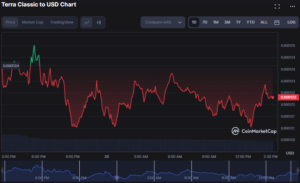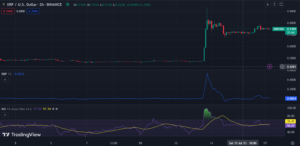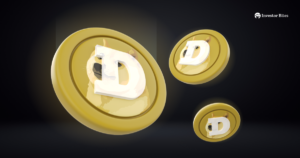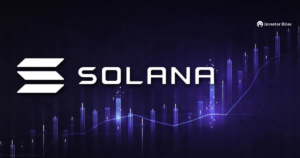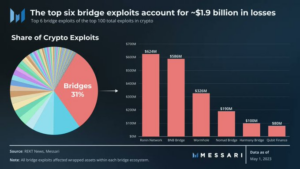
SNEAK PEEK
- Polygon Labs plans to convert MATIC token into POL to strengthen the Polygon ecosystem and provide incentives.
- The POL token will play a pivotal role in securing and advancing the Polygon ecosystem, with an initial supply of 10 billion tokens.
- The transition from MATIC to POL will enhance safety, scalability, and support within the Polygon ecosystem.
Polygon Labs, a prominent blockchain development company, has recently released a blog post outlining their ambitious strategy to transform their native MATIC token into POL, a highly efficient third-generation digital asset. This move aims to strengthen the Polygon ecosystem by fostering coordination and providing compelling incentives for participants.
The POL proposal is out today. ICYMI
POL is proposed as a 3rd generation native asset.
First “hyper-productive” token where :
1. Validators can validate multiple Chains
2. Chains can offer multiple roles (and corresponding rewards) to validators. Different roles will be… pic.twitter.com/K9DNJdMf95— Sandeep Nailwal | sandeep. polygon 💜 (@sandeepnailwal) July 13, 2023
In their comprehensive whitepaper, Polygon asserts that POL will play a pivotal role in securing, aligning, and advancing their thriving ecosystem. With an initial token supply of 10 billion, all tokens will be utilized to facilitate the seamless exchange of MATIC for POL. Moreover, the POL digital asset will emit at a rate of 2% per year, fueling validator rewards and the common pot.
Envisioning a decade-long growth scenario, Polygon’s layer2 predicts that POL’s value will average around $5, alongside the support for 25 public chains and over 3000 supernets within the ecosystem. Furthermore, as part of their innovative design, POL holders will have the opportunity to serve as validators across multiple chains, with distinct responsibilities and rewards tailored to each.
Meanwhile, during the transition period, MATIC holders will have the option to convert their tokens to POL at a 1:1 ratio. Notably, the protocol strictly prohibits the coexistence of MATIC and POL, emphasizing that “POL can only replace MATIC.”
If successfully implemented, this proposed token update will enhance the safety, scalability, and overall support of the entire Polygon ecosystem. Furthermore, it promises to address inefficiencies commonly associated with traditional blockchain protocols, where users and developers are required to hold, stake, or consume native tokens to access network services.
Polygon Labs explicitly dismisses speculation that this uplift is a response to the current regulatory uncertainty surrounding digital assets. While the U.S. Securities and Exchange Commission (SEC) has classified MATIC and several other cryptocurrencies as securities, resulting in their removal from the offerings of certain American companies, Polygon maintains that their decision is driven by their commitment to enhancing their ecosystem rather than regulatory concerns.
Polygon Labs’ technical plan to transition from MATIC to POL demonstrates their determination to foster the growth and efficiency of the Polygon ecosystem. By introducing POL as the next generation native token, they aim to bolster security, scalability, and incentives while ensuring a seamless conversion process for MATIC holders. As the ecosystem expands and embraces multiple chains, POL holders will play crucial roles as validators, further solidifying the network’s strength and resilience.
- SEO Powered Content & PR Distribution. Get Amplified Today.
- PlatoData.Network Vertical Generative Ai. Empower Yourself. Access Here.
- PlatoAiStream. Web3 Intelligence. Knowledge Amplified. Access Here.
- PlatoESG. Automotive / EVs, Carbon, CleanTech, Energy, Environment, Solar, Waste Management. Access Here.
- BlockOffsets. Modernizing Environmental Offset Ownership. Access Here.
- Source: https://investorbites.com/enhancing-the-future-polygon-introduces-pol-as-the-next-generation-native-token/
- :has
- :is
- :where
- 1
- 1:1 ratio
- 10
- 13
- 2%
- 25
- 3000
- 3rd
- 3rd generation
- 60
- a
- access
- across
- address
- advancing
- aim
- aims
- aligning
- All
- alongside
- ambitious
- American
- an
- and
- ARE
- around
- AS
- asset
- Assets
- associated
- At
- average
- BE
- Billion
- Billion tokens
- blockchain
- Blockchain News
- Blog
- bolster
- by
- CAN
- Center
- certain
- chains
- classified
- commission
- commitment
- Common
- commonly
- Companies
- company
- compelling
- Concerns
- consume
- Conversion
- convert
- coordination
- Corresponding
- crucial
- crypto
- crypto exchange
- cryptocurrencies
- Current
- decision
- demonstrates
- Design
- detailed
- determination
- developers
- Development
- Development Company
- different
- digital
- Digital Asset
- Digital Assets
- distinct
- driven
- during
- each
- ecosystem
- efficiency
- efficient
- Embraces
- emphasizing
- enhance
- enhancing
- ensuring
- exchange
- expands
- external
- facilitate
- For
- Foster
- fostering
- from
- further
- Furthermore
- future
- generation
- Growth
- Have
- highly
- hold
- holders
- HTTPS
- implemented
- in
- Incentives
- initial
- innovative
- internal
- into
- Introduces
- introducing
- investigation
- investor
- IT
- Labs
- largest
- Layer2
- Matic
- Moreover
- move
- multiple
- multiple chains
- native
- Native Token
- network
- news
- next
- notably
- of
- offer
- Offerings
- only
- Opportunity
- Option
- or
- Other
- out
- over
- overall
- part
- participants
- per
- period
- pivotal
- plans
- plato
- Plato Data Intelligence
- PlatoData
- Play
- Polygon
- Polygon’s
- Post
- Predicts
- process
- prominent
- promises
- proposal
- proposed
- protocol
- protocols
- provide
- providing
- public
- Rate
- rather
- ratio
- recently
- regulatory
- released
- removal
- replace
- required
- resilience
- response
- responsibilities
- resulting
- Rewards
- Role
- roles
- s
- Safety
- Sandeep Nailwal
- Scalability
- scenario
- seamless
- SEC
- securing
- Securities
- Securities and Exchange Commission
- security
- serve
- Services
- several
- speculation
- stake
- Strategy
- strength
- Strengthen
- Successfully
- supply
- support
- Surrounding
- tailored
- Technical
- than
- that
- The
- The Future
- their
- they
- this
- thriving
- to
- today
- token
- token supply
- Tokens
- traditional
- Transform
- transition
- u.s.
- U.S. Securities
- U.S. Securities and Exchange Commission
- Uncertainty
- Update
- Uplift
- users
- utilized
- VALIDATE
- Validator
- validators
- value
- What
- What is
- while
- will
- with
- within
- year
- zephyrnet


